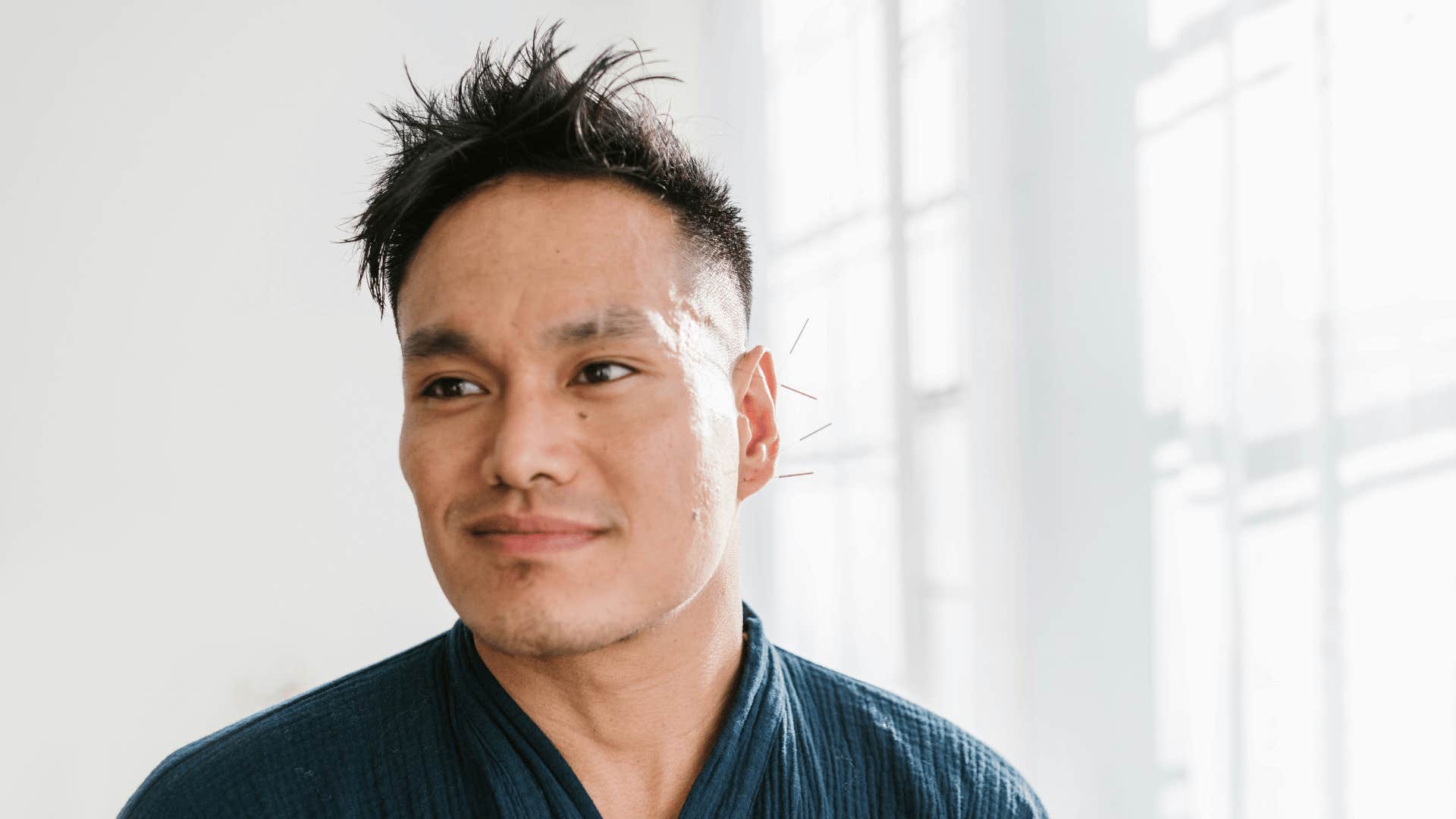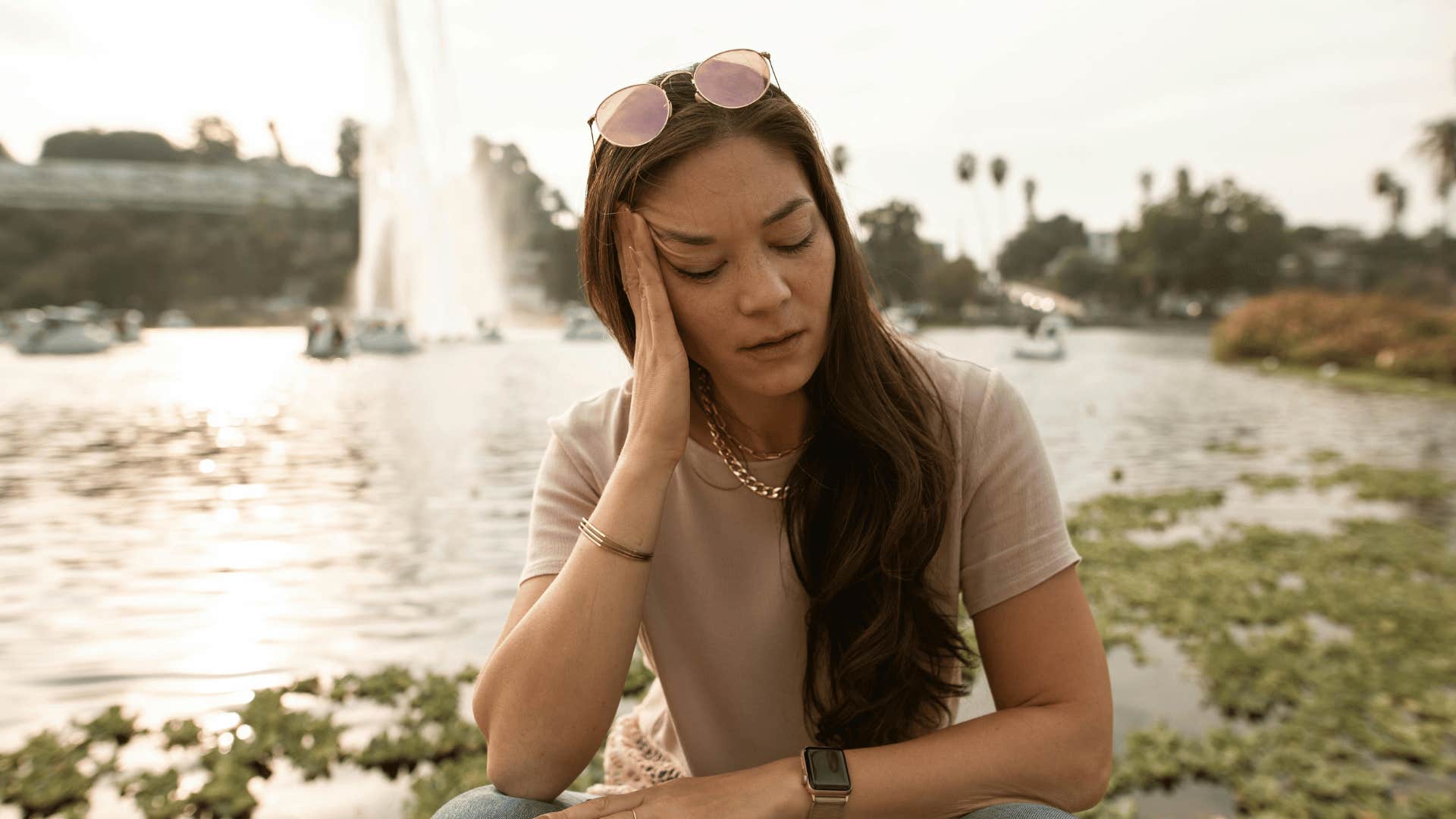10 Signs You're Genuinely Happier Than You Think
Happiness is not something you have to get lucky with.
 Krakenimages.com / Shutterstock
Krakenimages.com / Shutterstock Are you happy? It's a surprisingly complex question because many of us get happiness wrong.
We think happiness equals "pleasure" and "excitement," but those things are fleeting and just leave you wanting more. True happiness, however, is the peace of mind that comes from dropping the desires, cravings, and attachments that block your joy in the first place.
Truly happy people share a number of similar traits, a few more common than others. And the reveal a lot about that inner joy.
Here are 10 signs you're genuinely happier than you think
1. You can celebrate other people's success
 Andrea Piacquadio / Pexels
Andrea Piacquadio / Pexels
When other people share good news (in a non-arrogant way), how you respond can reveal a lot about your happiness.
For example, let's say you moved to Europe and some people were incredibly spiteful. After sharing a tactful story, maybe they muttered, "Oh, that's nice," and then changed the subject. Over time, you could sense their growing resentment and jealousy, and that their lack of self-worth made them feel threatened.
But happy people genuinely feel delighted for other people's successes. There's no pretense or one-upmanship. It doesn't make them feel threatened because they have healthy self-esteem and self-worth, know they aren't in competition with anyone else, and sincerely want others to succeed.
2. You don't tell everyone you're happy
 RDNE Stock project / Pexels
RDNE Stock project / Pexels
There's a big difference between being happy and showing everyone you're happy. Unfortunately, many focus on the second one, not the first.
They try so hard to show themselves as happy — on social media, in conversations, and so on — but often, they're lying to themselves or trying to create a fake persona, which makes them more unhappy because of their need for approval.
Happy people don't go around yelling, "I'm happy!" or writing social media posts proclaiming their joy. Rather, they are just happy!
3. You accept negative emotions
 RDNE Stock project / Pexels
RDNE Stock project / Pexels
Don't confuse happiness with "toxic positivity," where people force themselves and others to be positive during tough times.
Some may tell you, "Don't be sad. Be happy. Always be happy. Happy, happy, happy," but this neurotic need to "act" happy often stems from being taught as a child that anger is bad. Unfortunately, bottling your emotions and smiling all the time, especially when mad, could create a serious level of repression and denial.
Happy people don't always smile. They understand that life has its ups and downs and it's okay to move with them. When they're sad, they let themselves feel sad; when they're mad, they let themselves feel mad.
Eventually, the emotions will pass and life will continue as it always does. And if you accept the good with the bad, it's a sign that you're truly happy.
4. You bounce back quickly
 Vitaly Gariev / Pexels
Vitaly Gariev / Pexels
Life happens. Sometimes, things randomly break, unfortunate events occur, or people let you down.
Unhappy people struggle in these moments. Any setback makes them explode or feel like the world is coming to an end. Or after it happens, they need a lot of "space" to "heal."
Happy people, however, bounce back quickly. They don't need to cry over every little problem; once their emotions pass, they get back on track and resume their lives. Even during a crisis, they can stay calm enough to make good decisions and fix the problem.
According to organizational psychologist Benjamin Hardy, Ph.D., "Healthy emotions reflect a healthy body — you shouldn't have to think much about them. When a problem arises, rather than burying it deeper, you mend it. You get over it. You let it go, so that it doesn't have to plague your future."
5. You don't gossip
 Sam Lion / Pexels
Sam Lion / Pexels
Happy people tend not to gossip, talk behind other people's backs, or spread negativity.
Unhappy people take outside negativity, absorb it, and then spread it to others. And because they gossip, they live in fear that everyone else will gossip about them because they are doing the same thing.
While you don't have to like everyone, there's no need to passive-aggressively talk trash about others, especially when they're not there. And if you're going to do it at all, at least say it to their face.
6. You're grateful and humble
 Matheus Bertelli / Pexels
Matheus Bertelli / Pexels
Happy people are endearingly humble. Many have done incredible things in their lives, but they don't think they're one iota better than any other person.
They don't let their accomplishments or experiences get to their head. They're grateful for them, sure, but they don't act conceited and egotistical or brag. They also give credit where credit is due.
Gratitude, after all, is one of the biggest factors in happiness. So give thanks for the blessings that happen each day and it will enhance your life.
7. You're living your best life
 mellamed / Pexels
mellamed / Pexels
For people who feel like every day of their lives is an adventure, they do more in their lifetime than 10 people combined! That's not to say that you have to sell everything tomorrow, pack your bags, and travel around the world to be happy... unless that's what you want.
The larger lesson is that happy people live their best lives in whatever way it means to them. If that means raising a loving family, that's great. If that means being a chef, that's great too.
But they're all dedicating their lives to something that brings meaning and fulfillment to them.
8. You're truly free
 Maksim Goncharenok / Pexels
Maksim Goncharenok / Pexels
Some people think they can't be happy until they get certain things like money or possessions. But they'll always be unhappy because they're stuck on the "hedonic treadmill."
That means that once they get what they want, they'll quickly adapt, lose their happiness, try to get something else, and repeat the cycle. If they can't be happy without those things, they can't be happy with them.
But truly happy people don't attach their happiness to other things. They don't need approval or validation to feel good about themselves. They're free from pressures, opinions, and the insatiable desire for more.
Do you feel free to be exactly who you want to be and do what you want? Would you feel okay if you lost everything? If so, nothing will be able to steal your joy.
9. You don't live in the past
 Andrea Piacquadio / Pexels
Andrea Piacquadio / Pexels
The happiest people aren't chained to their past. They focus on the incredible potential in the present to take action, do what they want, and thrive.
In "The Time Paradox," Dr. Philip Zimbardo, a psychologist and professor, tells the story of Edie Eger, a woman who "exuded a joy for life." As a child, Edie was sent to the Auschwitz concentration camp and endured horrifying experiences, yet she learned to overcome her past, embrace her life, and encourage others to do the same.
The past always changes based on the present. So if you want to "heal" the past, the best way is to seize your life now.
An excerpt from Zimbardo's book reads, "It is not the events of the past that most strongly influence our lives. Your attitudes toward events in the past matter more than the events themselves. This distinction between the past and your current interpretation of it is critical because it offers hope for change. You cannot change what happened in the past, but you can change your attitude toward what happened."
10. You can enjoy doing nothing
 Andrea Piacquadio / Pexels
Andrea Piacquadio / Pexels
Sometimes, when people do nothing, they feel anxious and worried because they think they should be doing something, they should be productive, or they should be working.
Sure, there's nothing wrong with being driven and productive. But there's a balance. It's about, on one hand, making the most of your time and, on the other hand, remembering the only moment we'll ever have is the present.
How much time do you spend fully immersed in enjoying the present moment? Are you able to be at peace doing nothing? As Thich Nhat Hanh said, "The miracle is not to walk on water. The miracle is to walk on the green earth, dwelling deeply in the present moment and feeling truly alive."
As you do that more, you'll be much happier in life.
Anthony J. Yeung is an entrepreneur, full-time world traveler, and writer whose bylines have appeared in Esquire, Men's Journal, GQ, and Men's Health, among many others.

